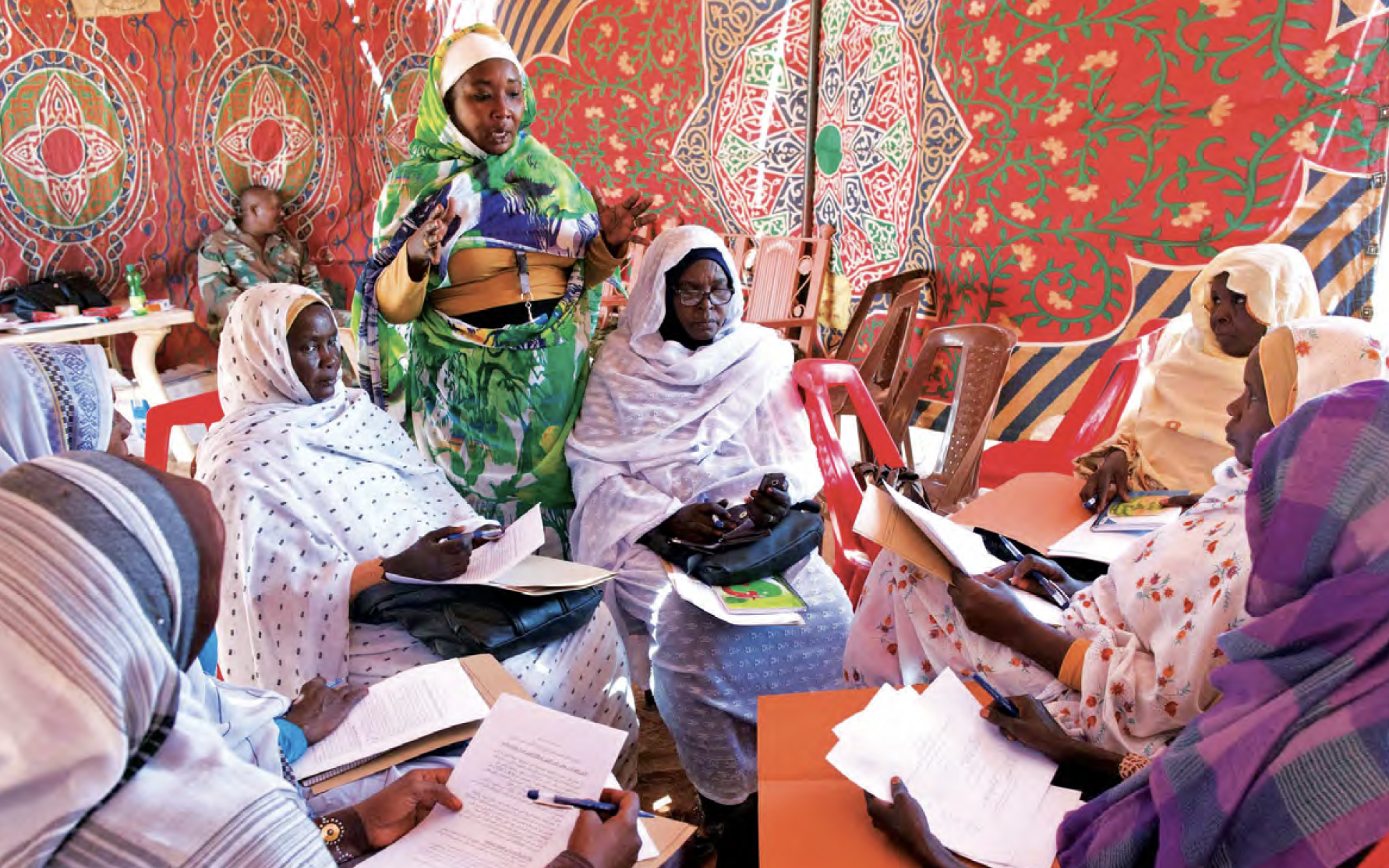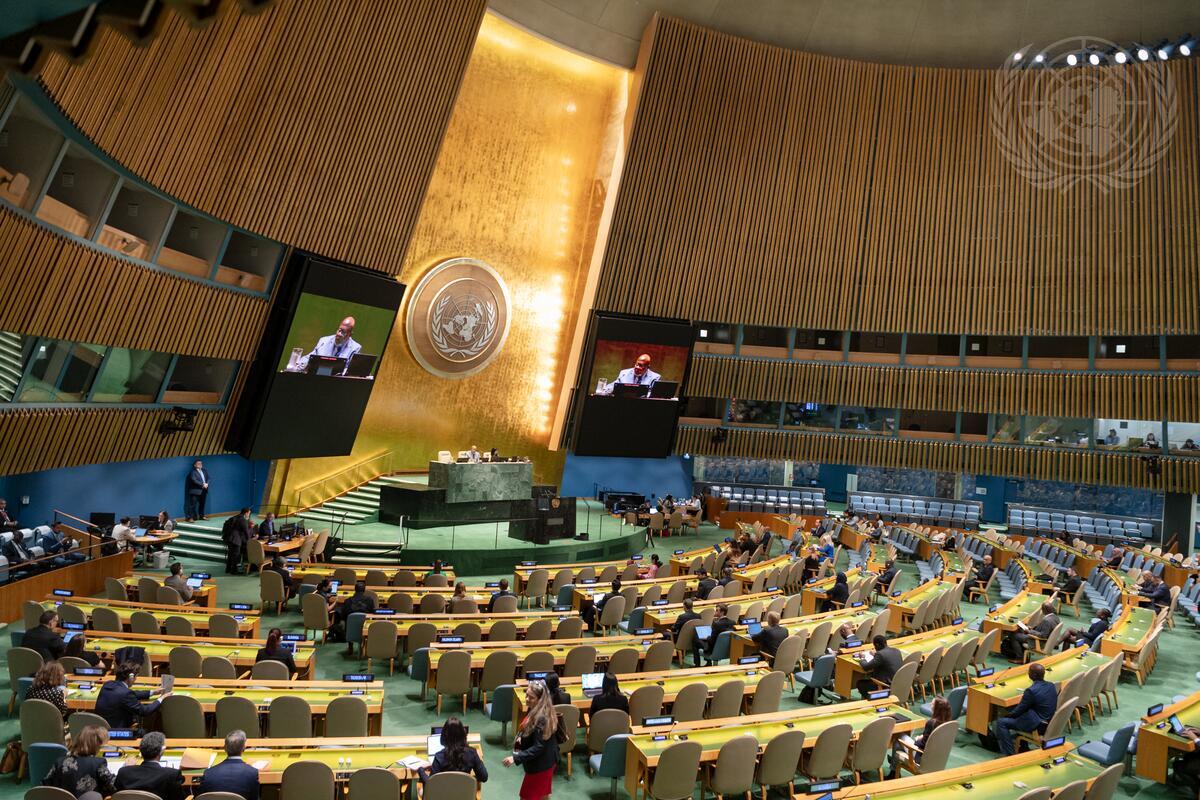
Iran: Human Rights Council must convene a special session
Fifty organisations urge the UN Human Rights Council to urgently convene a special session to address an unprecedented escalation in mass unlawful killings of protesters in Iran.

The expertise, insights and efforts of women human rights defenders are key to achieving a sustainable and effective response to conflict, says ISHR in a new report providing recommendations to the UN Security Council on how best to ensure such input is sought, heard and acted upon.
At all stages of conflict, women human rights defenders play a critical role in challenging inequalities, mobilising communities, demanding justice and holding those in power accountable. On Women Human Rights Defenders Day (29 November), ISHR launches its new report: ‘Are Peace and Security Possible Without Women Human Rights Defenders? And why this question matters to the UN Security Council.’
In the new report, ISHR highlights how women human rights defenders are uniquely positioned and critically important to inclusive, rights-based, participatory and sustainable peace and security.
‘Solutions are found through the participation of women, and the respect of women’s rights are the cornerstone of a genuine peace,’ said ISHR’s Pooja Patel.
If the perspectives of women defenders are ignored, the systemic causes of conflict are ignored, argues ISHR. Further, if women defenders’ efforts to alert to impending conflict are brushed aside, averting serious conflict is less likely; and if women defenders are excluded from peace processes and post-conflict rebuilding, the peace created will be less likely to incorporate and speak to the full spectrum of human rights.
The report includes accounts by women human rights defenders talking about their work and its impact. For example, Syrian NGO ‘Women Now for Development’ speaks of how, through their work in documenting women’s narratives about the disappeared in the conflict, they have been able to bring the issue of detention to peace talks.
This work, however, can carry grave risks. Aside from the impact upon the individual and community, attacks against women defenders can ‘fundamentally undermine global efforts to prevent conflict and sustain peace’, as the UN’s Secretary General has attested.
‘Given this, it is clearly in the Security Council’s interest to act to promote and protect the work of women defenders,’ said ISHR’s Pooja Patel. ‘It must integrate into its work acknowledgement of and engagement with women defenders and encourage the same in other parts of the UN and by UN member States. We provide recommendations on how to do this.’
‘The Security Council has a role to play in setting global standards and encouraging models of work that enable the work of women defenders. It is time to make that happen,’ she added.
As a complement to this new report, ISHR has produced a policy brief ‘Preventing and Addressing Reprisals and Intimidation in relation to engagement with the UN Security Council’, in recognition that cooperating with UN bodies, including the Security Council, can carry risks for human rights defenders and that these bodies must play a role in mitigating them.
Photo: Sojoud Elgarrai for UNAMID is licensed under CC BY-NC-ND 2.0 (https://creativecommons.org/licenses/by-nc-nd/2.0/legalcode)

Fifty organisations urge the UN Human Rights Council to urgently convene a special session to address an unprecedented escalation in mass unlawful killings of protesters in Iran.

The Escazú Ahora Chile Foundation, the Protege los Molles Foundation and ISHR demand that the investigation, arrest and legal proceedings involving Julia Chuñil's relatives be conducted in accordance with international standards of due process.

At a time of financial strife and ongoing reform for the organisation, States have adopted a 2026 budget cutting 117 jobs at the UN’s Human Rights Office. The final budget endorses proposed cuts that disproportionately target human rights, imperilling the UN’s ability to investigate grave abuses, and advance human rights globally.